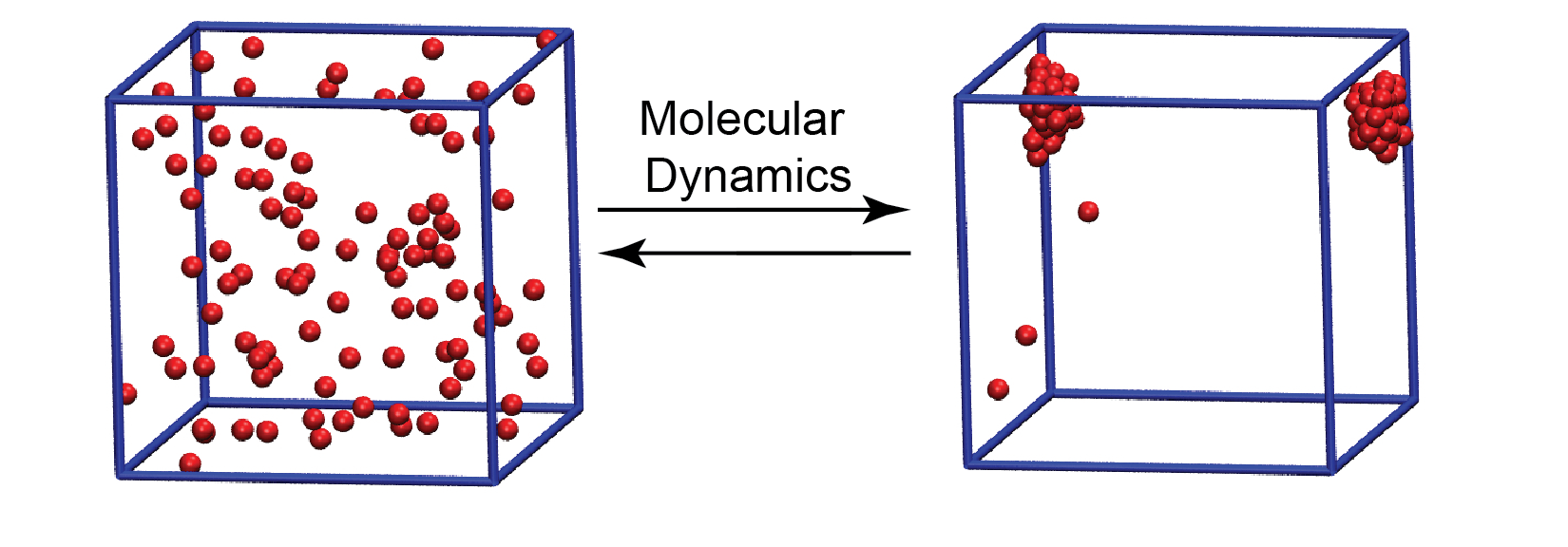2016: Fundamentals of Simulation Methods

Winter semester 2016/2017
by Frauke Gräter and Rüdiger Pakmor
This lecture (MVComp1) is part of the specialization in Computational Physics within the physics masters degree at Heidelberg University. The objectives of this course are to endow students with the capacity to identify and classify common numerical problems, to reach an active understanding of applicable numerical methods and algorithms, to solve basic physical problems with adequate numerical techniques, and to recognize the range of validity of numerical solutions.
TOPICS
- Basic concepts of numerical simulations, continuous and discrete simulations
- Discretization of ordinary differential equations, integration schemes of different order
- N-body problems, molecular dynamics, collisionless systems
- Discretization of partial differential equations
- Finite element and finite volume methods
- Lattice methods
- Adaptive mesh refinement and multi-grid methods
- Matrix solvers and FFT methods
- Monte Carlo methods, Markov chains, applications in statistical physics
Examples will include molecular and astrophysics problems.
LECTURE DATES AND TOPICS
Date Lecturer Topic
oct
18 FG intro
20 FG 1. intro
25 RP 2. ODEs
27 RP 2. ODEs
nov
3 RP 3. collisionless systems
8 RP 3. collisionless cystems
10 RP 4. trees
25 FG 5. Particle-mesh
17 FG 5. Particle-mesh
22 FG 6. FT
24 FG 6. FT
29 FG 7. iterative solvers
dec
1 FG 7. iterative solvers
6 FG 8. MD
8 FG 8. MD
13 RP 8. MD
15 FG 8. BD
20 FG 9. MC
22 FG 9. MC
jan
10 RP 10. Gas dynamics
12 RP 10. Gas dynamics
17 RP 11. PDEs
19 RP 11. PDEs
24 RP 12. SPH
26 RP 13. FEM
31 RP 13. FEM
feb
2 RP 14. Parallelization
7 RP 14. Parallelization
9 exam
march
9 2nd exam
ORGANIZATION
The lecture takes place weekly, Tuesdays and Thursdays, 9:30-11:00, in INF-227 / HS2 (KIP), with the first lecture taking place on October 18, 2016.
The exercises are Fridays:
group 1: 11:15-13:00 in the CIP-Pool Philos.-weg 12 ( by Csaba Daday)
group 2: 14:15-16:00 in the CIP-Pool 1.401 at INF-227 (by Christopher Zapp)
Prior knowledge in a programming language and experience with plotting software is highly recommended for the course. There will be a short written examination at the end, and active and successful participation in the homework/exercises is a prerequisite for participation in the final exam and obtaining the credit points for the lecture. The use of Moodle is foreseen for the lecture. Those of you who wish to acquire the credit points should please register to the Moodle (password will be announced at the first lecture).
Access to the script and exercises are provided through Moodle here.
LITERATURE
(more to come)
- W. Hockney and J.W. Eastwood, “Computer Simulation using Particles”
- P. Allen and D. J. Tildesley, “Computer Simulation of Liquids“
- Randall J. LeVeque, “Finite Volume Methods for Hyperbolic Problems”
- Toro, E.F. “Riemann Solvers and Numerical Methods for Fluid Dynamics”
Über das HITS
Das HITS (Heidelberger Institut für Theoretische Studien) wurde 2010 von dem Physiker und SAP-Mitbegründer Klaus Tschira (1940-2015) und der Klaus Tschira Stiftung als privates, gemeinnütziges Forschungsinstitut gegründet. Es betreibt Grundlagenforschung in den Naturwissenschaften, der Mathematik und der Informatik. Zu den Hauptforschungsrichtungen zählen komplexe Simulationen auf verschiedenen Skalen, Datenwissenschaft und -analyse sowie die Entwicklung rechnergestützter Tools für die Forschung. Die Anwendungsfelder reichen von der Molekularbiologie bis zur Astrophysik. Ein wesentliches Merkmal des Instituts ist die Interdisziplinarität, die in zahlreichen gruppen- und disziplinübergreifenden Projekten umgesetzt wird. Die Grundfinanzierung des HITS wird von der Klaus Tschira Stiftung bereitgestellt.